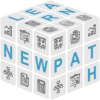Reading is a fundamental skill that plays a crucial role in human cognitive development. From the moment children are introduced to the world of letters and stories, their brains begin to undergo profound transformations. These changes not only affect language skills but also extend into various aspects of cognitive development. In this article, we will explore how reading habits impact cognitive development, from early childhood through adulthood.
Early Childhood: The Foundation of Cognitive Development
1. Language Skills: One of the most apparent effects of early reading habits is the development of language skills. When children are exposed to books and read to regularly, they learn new words, sentence structures, and the cadence of language. This exposure enhances their vocabulary, comprehension, and communication skills.
2. Cognitive Stimulation: Reading stimulates cognitive processes such as memory, attention, and critical thinking. Young readers engage in activities like recognizing letters, understanding story sequences, and solving problems within the text. These cognitive exercises help develop neural pathways in the brain, improving overall cognitive function.
3. Emotional Development: Reading often involves empathizing with characters and understanding their emotions and motivations. This fosters emotional intelligence, a crucial aspect of cognitive development. As children read and relate to characters, they gain a better understanding of the complexities of human emotions, which helps them navigate their own feelings and interactions with others.
Adolescence: Expanding Horizons
1. Critical Thinking: As children transition into adolescence, their reading material becomes more complex. They encounter different writing styles, genres, and perspectives, which require more advanced critical thinking. They learn to analyze, evaluate, and form well-structured arguments. This fosters critical thinking skills that extend beyond the realm of literature.
2. Creativity: Reading inspires creativity by introducing young minds to new worlds, ideas, and possibilities. It encourages them to think beyond the boundaries of their own experiences. This imaginative thinking is a key component of cognitive development, as it helps individuals approach problems from multiple angles and develop innovative solutions.
3. Broadened Knowledge: The acquisition of knowledge through reading is an essential part of cognitive development. As adolescents explore a wide range of topics through books, they expand their general knowledge base. This knowledge becomes a valuable resource, allowing them to engage in informed discussions, make connections, and gain insights into various fields of study.
Adulthood: Lifelong Learning
1. Lifelong Learning: Reading habits established in childhood and adolescence often persist into adulthood. Avid readers tend to become lifelong learners, continually seeking new information and experiences through books. This ongoing cognitive stimulation can delay cognitive decline in later years.
2. Enhanced Problem-Solving: Reading helps adults hone their problem-solving skills by exposing them to diverse scenarios, challenges, and resolutions. They can draw from the experiences of fictional characters and apply these lessons to real-life situations.
3. Emotional Resilience: Adults who read regularly also tend to exhibit greater emotional resilience. By immersing themselves in the lives of characters and their struggles, readers learn to cope with adversity, empathize with others, and find solace in the written word. This emotional fortitude is an integral part of cognitive development in adulthood.
In conclusion, reading habits have a profound and lasting impact on cognitive development at every stage of life. From enhancing language skills and fostering critical thinking in childhood to stimulating creativity and broadening knowledge in adolescence and promoting lifelong learning and emotional resilience in adulthood, reading is a powerful tool for nurturing cognitive growth. Encouraging reading from a young age and maintaining the habit throughout life is a surefire way to support cognitive development and help individuals reach their full intellectual potential.

